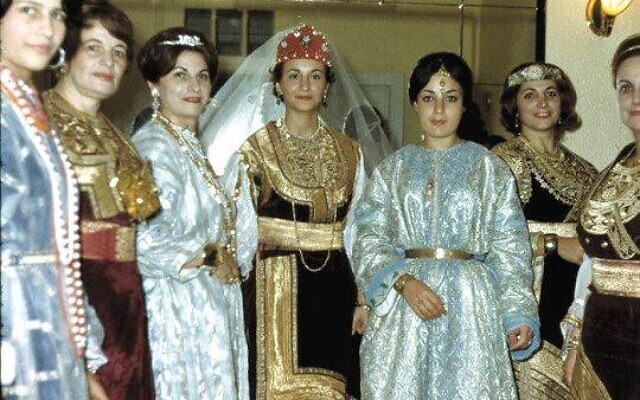The history of Jewish communities in North Africa, particularly in Morocco, is marked by a rich cultural and religious tradition, according to historians. Among the key figures in this history, Moroccan Jewish women play a crucial role in preserving and transmitting Jewish culture, both in Morocco and beyond its borders. Their contribution has been evident not only in the domestic sphere but also in the flourishing of social, religious, and cultural life within the community.
At the heart of daily life, Moroccan Jewish women were and are responsible for managing the household, a vital role in traditional societies. They take care of meal preparation, an act that, beyond its practical aspect, holds religious significance. Through religious holidays and family rites, these women transmit the traditions and values of their community.
The emigration of Moroccan Jews, often under the pressure of foreign powers, to Israel, Europe, and other countries, marked a turning point for the community. This process has often been accompanied by challenges related to adapting to new social and cultural environments.
Beyond their family role, these women also worked to strengthen the collective memory of the Moroccan Jewish community through documentation and transmission projects. They participated in the creation of cultural centers, museums, and publications that celebrate the history of Jews in Morocco.
Since his accession to the throne in 1999, King Mohammed VI has undertaken significant initiatives to restore and preserve Morocco’s Jewish heritage. He established a commission dedicated to the restoration of synagogues and Jewish cemeteries, along with funding for these projects. This support has allowed the preservation of essential historical sites in the memory of the Moroccan Jewish community.
The monarch has also encouraged a better understanding of Jewish history and culture in Morocco by organizing guided tours of synagogues and supporting academic research on Moroccan Jewish communities.
These efforts have contributed to promoting tolerance, mutual respect, and coexistence among the country’s various religious communities, thus strengthening Morocco’s image as a model of pluralism and cultural diversity.
Jewish culture in Morocco, deeply rooted in the country’s history, is characterized by great diversity. Moroccan Jews have managed to maintain numerous religious and cultural practices, such as the Hebrew language, music, cuisine, and traditional dances. They have also contributed to the fields of arts, literature, and education, playing an important role in the intellectual and artistic life of the country.
Today, the role of Moroccan Jewish women continues to be a cornerstone in the transmission of this cultural and religious heritage. Their involvement in preserving Jewish memory, in efforts to keep Moroccan culture alive within the diaspora, and in supporting cultural initiatives in Morocco demonstrates the enduring nature of this commitment.

